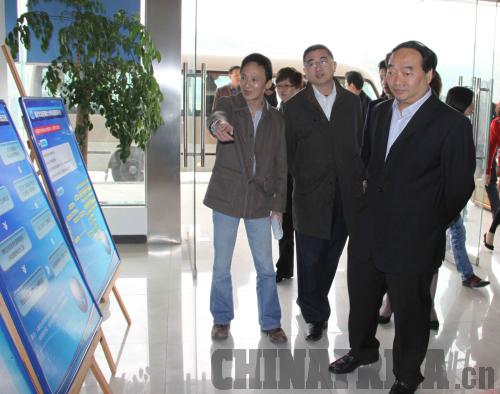|
 |
|
Lei Zhengfu (right) |
Li Chuncheng hit highs and lows in 2012. The former deputy secretary of the Sichuan Provincial Committee of the Communist Party of China (CPC) went from hero to zero in a saga that began in mid-November. Li was elected an alternate member of the Central Committee of the ruling Party at its 18th National Congress, a position that ensured him a bright future in his political career. However, only 20 days later he fell from grace when he was removed from this position and the Party's Central Commission for Discipline Inspection began to investigate him.
Li's demise began with a post from Shen Yong, a young policeman in Chengdu, capital of Sichuan Province, on Sina Weibo, China's largest microblogging website. Shen disclosed information implicating Li in corruption. This came to the attention of the CPC Central Commission for Discipline Inspection, China's top force against corruption.
Li Chuncheng is not the only high official who was exposed for corruption on microblogs. Lei Zhengfu, former Secretary of the CPC Beibei District Committee of Chongqing Municipality, is another example. On November 20, journalist Ji Xuguang posted pictures on Sina Weibo of Lei being bribed with sexual favors. Only three days later, Lei was removed from his post and put under investigation.
During the month after the 18th CPC National Congress, officials were investigated almost daily. In south China's Guangdong Province, in the space of one week, four high-ranking officials were investigated for corruption. Many of these cases were exposed on microblogs.
Online army
The newly elected leading group of the CPC is determined to address corruption and has vowed to strengthen its efforts in this regard. The report to the 18th National Party Congress said, "All those who violate Party discipline and state laws, whoever they are and whatever power or official positions they have, must be brought to justice without mercy."
Experts believe that China is encouraging netizens to disclose details of corruption on the Internet. More importantly, anti-corruption organizations can quickly investigate what was exposed by netizens.
Statistics from China Internet Network Information Center said that at the end of June 2012, China had about 538 million Internet users and more than half of them use microblogs. Among Chinese Internet users over 19 years old, 88.8 percent have microblog accounts, making opportunities for exposing corruption enormous.
"Mass participation is the most effective way to fight corruption and should be encouraged," said Zhu Lijia, Professor of Chinese Academy of Governance, in an interview with Procuratorial Daily.
Full disclosure
Zhou Wenbin is a staff member at the Bureau of Land and Resources of Lixin County in Anhui Province, and is now heralded as China's first real-name anti-corruption microblogger. But before April 13, 2011, he knew nothing about microblogging.
"I didn't expect that I could achieve my goal through my Sina Weibo blog," Zhou told ChinAfrica. "Actually, Weibo was my last attempt after numerous frustrations."
When he found his boss took bribes, he decided to report this to anti-corruption authorities. He wrote anonymous letters and e-mails to discipline inspection commissions and to the media, but he got no response.
"One of my friends suggested that I try Weibo and I did," said Zhou. After he registered his Weibo account with his real name and ID number, he tweeted, "I will report the corruption of my boss by surrendering myself to the judicial department, as I also offered him bribes."
|